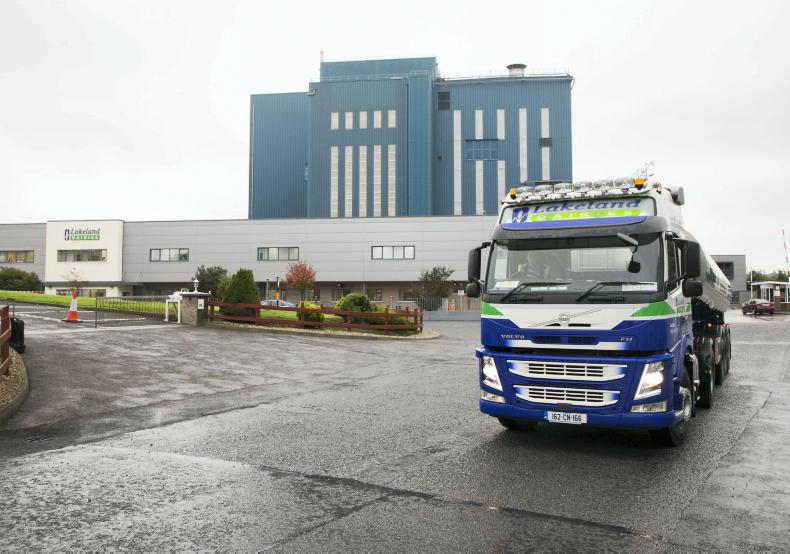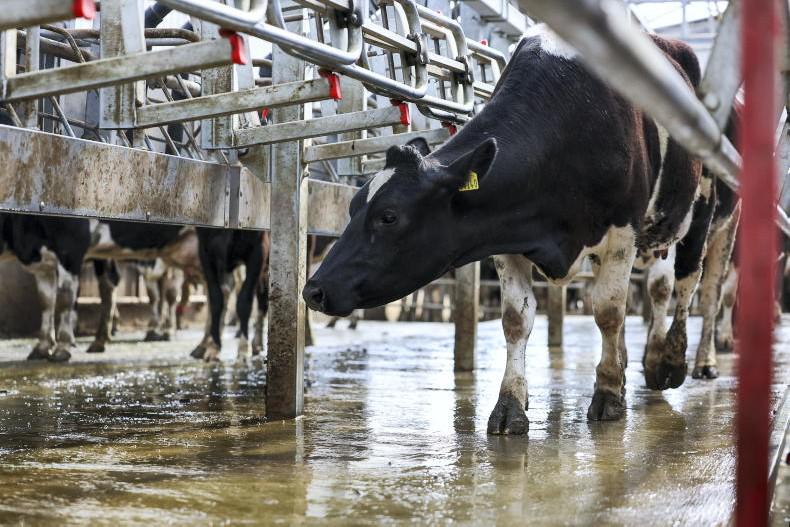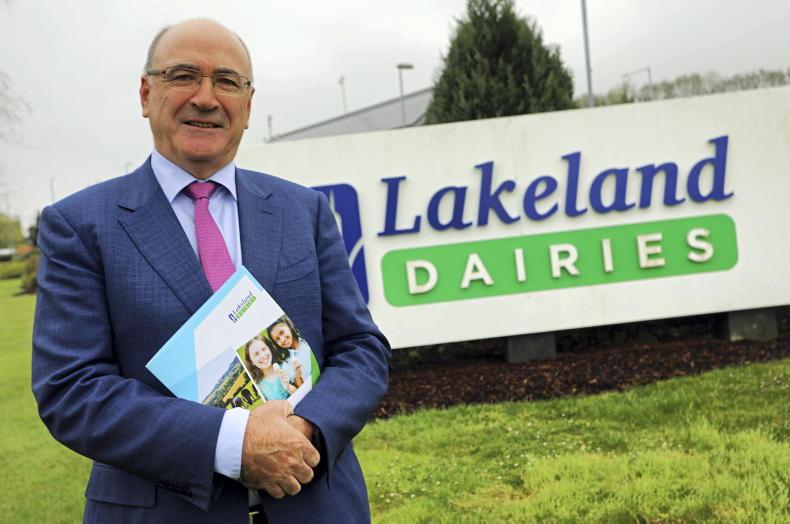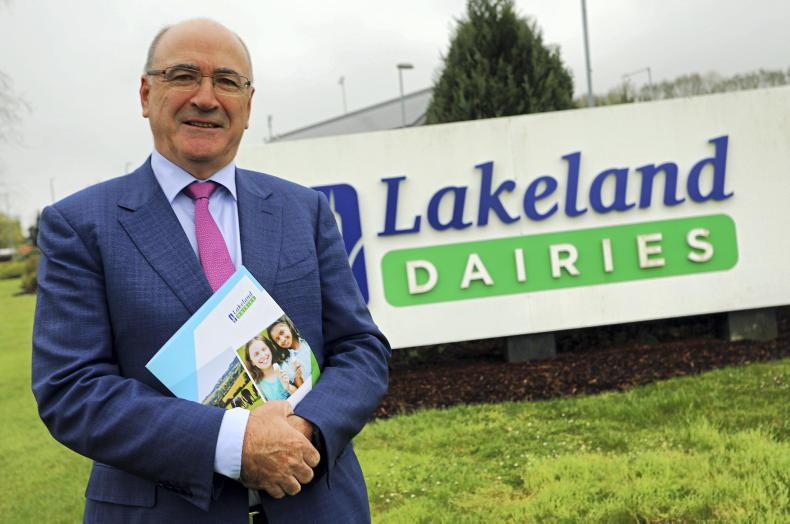Politicians who want to change the post-Brexit trading arrangements set out in the Northern Ireland (NI) protocol must beware of any unintended consequences of their actions, Lakeland Dairies CEO Michael Hanley told a Westminster committee on Wednesday.
Hanley was addressing members of the House of Lords who are taking evidence on the NI protocol bill, the legislation currently going through the British parliament that will give government ministers the power to override parts of the protocol.
Included in the draft legislation are so-called green lanes, where goods coming from Britain for sale in NI will not be subject to any checks at NI ports.
There is also a dual regulatory regime proposed, where NI companies could choose whether to produce to UK rules (if selling in NI or Britain) or the EU (if they want to export out of the UK).
It is this dual regulatory regime that has created significant concern within NI food processing and the dairy industry in particular.
Evidence
During his evidence, Hanley explained that limited processing capacity in NI means that around 800m litres of NI milk is processed in the Republic of Ireland each year.
Lakeland suppliers account for nearly half of the NI milk pool, with 40% taken south for processing.
Over £427m of product from NI farms is exported by Lakeland into Europe and the rest of the world, and this product must be accompanied by a health certificate signed off by a DAERA vet.
The NI protocol is working extremely well for the dairy industry in NI
“With product available in NI that is produced to one of two regulatory regimes, how can a DAERA vet sign off on the veterinary certificate? That is the issue,” Hanley told committee members.
He said that the vet will have to consider the grain fed to the animal, the animal health products used and whether they are produced to EU standards.
“Can the NI vet certify that the product is produced to EU standards? If the vet can’t certify it, that is decimation of dairy farms across NI.
“Overall, the NI protocol has worked extremely well for our business. It has been seamless. The NI protocol is working extremely well for the dairy industry in NI,” he said.
Alternate view
However, a different view of the NI protocol was given by Peter Summerton, managing director of haulage business McCulla Ireland.
He said that the protocol “isn’t working” and adds massive bureaucracy and costs that mean higher bills for consumers.
He also maintained that the UK decision to unilaterally extend so-called grace periods for retail goods in September 2021 has effectively created a two-tier system.
On the one hand, some businesses such as major supermarkets benefit, while others are left to face the full implementation of EU rules.
He gave examples of lorry loads of goods being sent back to Britain because one line on a health certificate was wrong and claimed that the EU continues to require increases in controls at NI ports on goods coming from Britain.
“We have a common travel area. Surely we can apply the same logic to goods moving across these islands. Irish food going to Britain is safe. British food going to Ireland is safe too,” he said.
Read more
The good and bad with UK Brexit bill
Autumn challenges for the European Union
Politicians who want to change the post-Brexit trading arrangements set out in the Northern Ireland (NI) protocol must beware of any unintended consequences of their actions, Lakeland Dairies CEO Michael Hanley told a Westminster committee on Wednesday.
Hanley was addressing members of the House of Lords who are taking evidence on the NI protocol bill, the legislation currently going through the British parliament that will give government ministers the power to override parts of the protocol.
Included in the draft legislation are so-called green lanes, where goods coming from Britain for sale in NI will not be subject to any checks at NI ports.
There is also a dual regulatory regime proposed, where NI companies could choose whether to produce to UK rules (if selling in NI or Britain) or the EU (if they want to export out of the UK).
It is this dual regulatory regime that has created significant concern within NI food processing and the dairy industry in particular.
Evidence
During his evidence, Hanley explained that limited processing capacity in NI means that around 800m litres of NI milk is processed in the Republic of Ireland each year.
Lakeland suppliers account for nearly half of the NI milk pool, with 40% taken south for processing.
Over £427m of product from NI farms is exported by Lakeland into Europe and the rest of the world, and this product must be accompanied by a health certificate signed off by a DAERA vet.
The NI protocol is working extremely well for the dairy industry in NI
“With product available in NI that is produced to one of two regulatory regimes, how can a DAERA vet sign off on the veterinary certificate? That is the issue,” Hanley told committee members.
He said that the vet will have to consider the grain fed to the animal, the animal health products used and whether they are produced to EU standards.
“Can the NI vet certify that the product is produced to EU standards? If the vet can’t certify it, that is decimation of dairy farms across NI.
“Overall, the NI protocol has worked extremely well for our business. It has been seamless. The NI protocol is working extremely well for the dairy industry in NI,” he said.
Alternate view
However, a different view of the NI protocol was given by Peter Summerton, managing director of haulage business McCulla Ireland.
He said that the protocol “isn’t working” and adds massive bureaucracy and costs that mean higher bills for consumers.
He also maintained that the UK decision to unilaterally extend so-called grace periods for retail goods in September 2021 has effectively created a two-tier system.
On the one hand, some businesses such as major supermarkets benefit, while others are left to face the full implementation of EU rules.
He gave examples of lorry loads of goods being sent back to Britain because one line on a health certificate was wrong and claimed that the EU continues to require increases in controls at NI ports on goods coming from Britain.
“We have a common travel area. Surely we can apply the same logic to goods moving across these islands. Irish food going to Britain is safe. British food going to Ireland is safe too,” he said.
Read more
The good and bad with UK Brexit bill
Autumn challenges for the European Union









SHARING OPTIONS